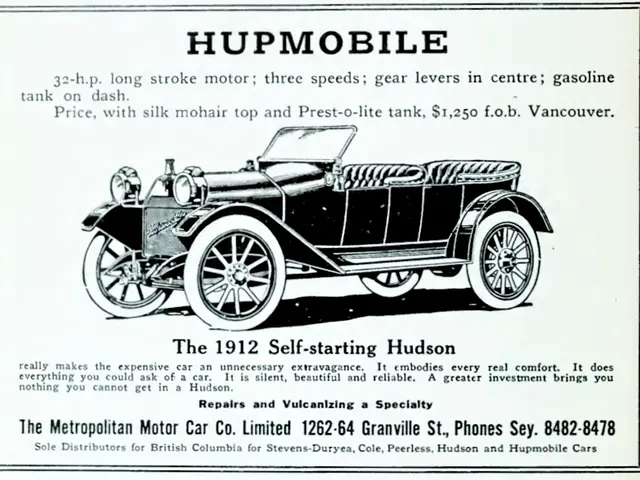Politicians' Favor for Car Services: Even Top Officials Rely on CO2 Emitting Vehicles
In a recent report by Environmental Action Germany (DUH), it has been revealed that the official cars used by Germany's top politicians emit significantly more CO2 than the average citizen's vehicle and fall short of EU fleet emission limits.
As of August 2025, only 87 out of 238 top politicians drive fully electric vehicles, reflecting a slow and insufficient transition towards climate-friendly official cars at the federal level. This figure represents a modest increase from 50% to 57% compared to the previous year, but there is no consistent switch to fuel-efficient official cars in the federal cabinet despite the ongoing climate crisis.
The EU aims to lower fleet emissions drastically, with policies targeting carbon-neutral vehicle fleets by 2035. However, the automotive sector, including official fleets, faces challenges balancing these ambitions with economic and industrial realities. German car production is increasing its share of battery electric vehicles, but official car fleets have not caught up fully to these trends.
The report also sheds light on the parties' performance in adopting climate-friendly official vehicles. While some parties are doing better than others, the increased adoption of electric vehicles among politicians is still limited and not fully aligned with the ambition of the EU's stricter fleet emission limits planned for the coming years.
State Minister Elisabeth Kaiser from the Federal Ministry of Finance drives the most climate-damaging vehicle with 228 grams of CO2 per kilometer. On the state level, DUH could not issue a single green card to any state government. Baden-Württemberg Minister-President Kretschmann's electric car emits only 70 grams of CO2, a marked contrast to Bavarian Minister-President Söder's petrol car, which emits the most CO2, at 292 grams per kilometre driven.
In a comparison of state environmental ministries, twelve green cards are awarded, while red cards are given to Brandenburg, Mecklenburg-Vorpommern, Hesse, and Saxony-Anhalt. Among the federal ministers' official cars, Environment Minister Schneider's electric car emits the least, at 62 grams.
The DUH has published an overview of the most important results in a PDF document. The report highlights a significant gap between public commitments to climate goals and the reality of political car fleets in Germany. The organisation plans to increasingly check the efficiency of the electric cars used in the future.
In summary, the report reveals that German politicians' official cars still emit more CO2 than average and lag EU fleet targets. Only about 36% of officials use fully electric vehicles, a slight improvement from last year. There is no consistent political commitment across all parties to shift fully to climate-friendly official vehicles. The EU has set tightening emission limits, but the automotive industry and government use of official cars have yet to meet those standards fully. This underscores the need for more concerted efforts to transition to climate-friendly official vehicles and align with EU emission standards.
Read also:
- Celebrated Title: Cheesemakers Blessed Upon
- Construction and renovation projects in Cham county granted €24.8 million focus on energy efficiency
- Threat looms over an ancient rock art site in Australia as the government prolongs the existence of a giant gas facility nearby
- Weekly proceedings in the Federal Diet (Bundestag)








